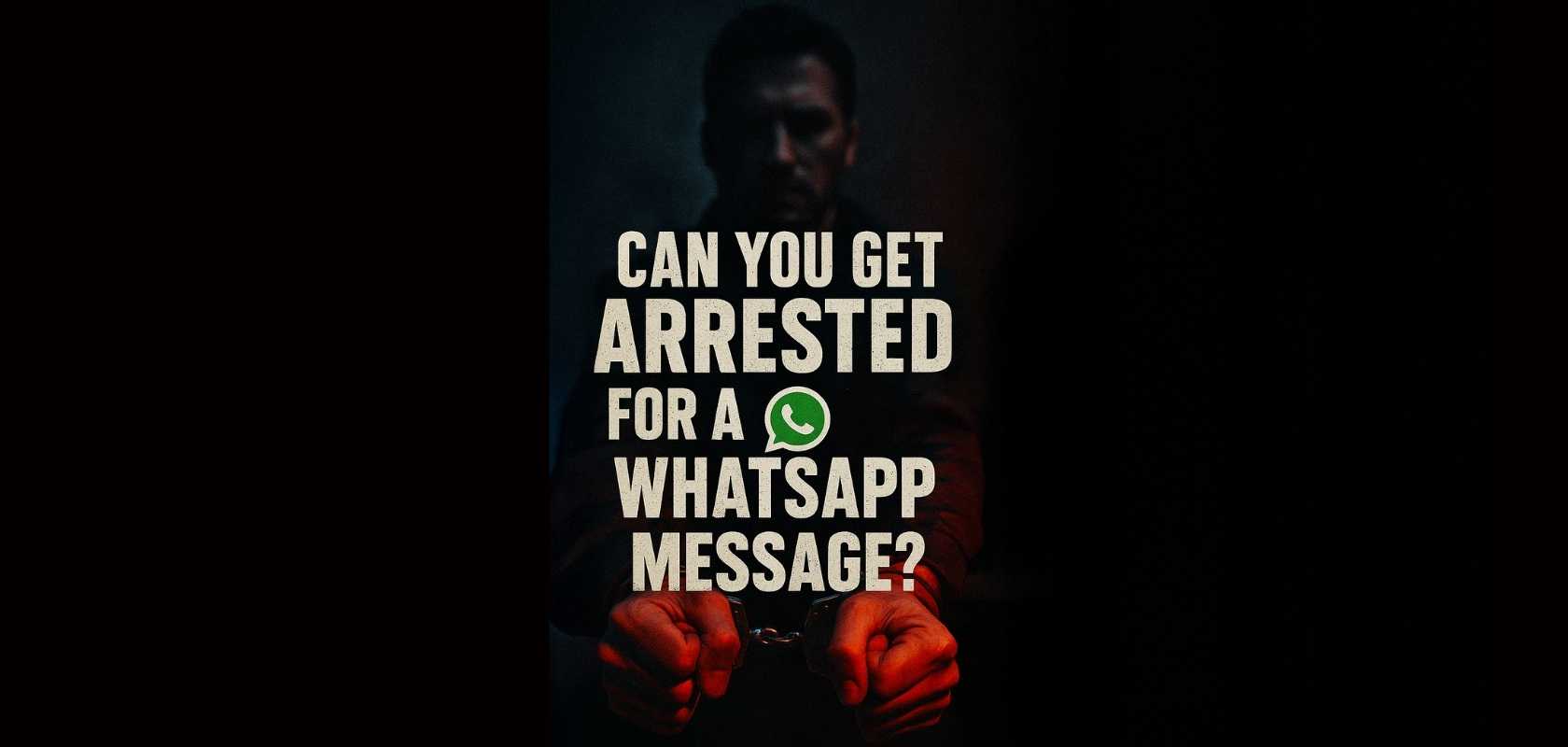
Can you get arrested for a Whatsapp message? Here's the Truth
Think WhatsApp is “private”? Think again.
In India, one message — even in a private chat — can get you arrested.
From jokes to forwards to screenshots, WhatsApp can become evidence in a criminal case. And yes, people have gone to jail over it.
Let’s break down the truth, the law, and what you need to be careful about — before you hit send.
📵 1. Yes, You Can Be Arrested for a WhatsApp Message
Under Indian law, you can be arrested if your WhatsApp message:
-
Is abusive or threatening
-
Spreads fake news or communal hatred
-
Harasses, bullies, or stalks someone
-
Contains obscene images, videos, or texts
-
Insults religious sentiments
-
Promotes violence or terrorism
-
Is part of a group that shares illegal content (even passively)
Surprising but true: Even if you forward something illegal without creating it, you may still face legal trouble.
⚖️ 2. Which Laws Can Be Used Against You?
Here are the main legal sections often used in WhatsApp-related arrests:
-
Section 295A IPC – Insulting religion
-
Section 509 IPC – Obscene words/gestures towards a woman
-
Section 506 IPC – Criminal intimidation (threats)
-
Section 66 & 67 of IT Act – Sending offensive, obscene, or sexually explicit content
-
Section 153A IPC – Promoting enmity between groups
-
Section 354D IPC – Online stalking
-
UAPA – For content supporting banned outfits or terrorism
⚠️ These laws are serious — and many are non-bailable.
📸 3. Yes, Screenshots and Chats Can Be Used in Court
Your WhatsApp chats can be:
-
Admissible evidence in civil and criminal cases
-
Used to file FIRs against you
-
Submitted to police by the victim or third parties
Even deleted messages can be recovered through forensic tools. End-to-end encryption doesn’t protect you from the law.
👥 4. Group Admin? You Could Be in Trouble Too
If you're the admin of a group where:
-
Hate speech is shared
-
Obscene content is posted
-
Fake news is circulated
You could be held responsible — especially if you don’t take action after being alerted.
Tip: Remove violators immediately and report to WhatsApp if needed.
🛡️ 5. What You Should Never Do on WhatsApp
To stay legally safe:
❌ Don’t send nudes or explicit content
❌ Don’t forward fake news or violent videos
❌ Don’t mock religions or castes
❌ Don’t threaten anyone — even “as a joke”
❌ Don’t blackmail or emotionally manipulate
❌ Don’t share private content without consent (revenge porn = jail)
✅ Bonus: What To Do If You're Falsely Accused
-
Keep proof of your intent and conversations
-
File a counter-complaint if you’re being framed
-
Consult a cybercrime lawyer immediately
-
Contact Cybercrime Portal: cybercrime.gov.in
🧠 Final Word: WhatsApp is Private — But Not Beyond the Law
Once a message is out, it can become:
-
A crime
-
A court exhibit
-
Or a headline
Be smart. Be responsible. Because one wrong message could change your life — and not in a good way.